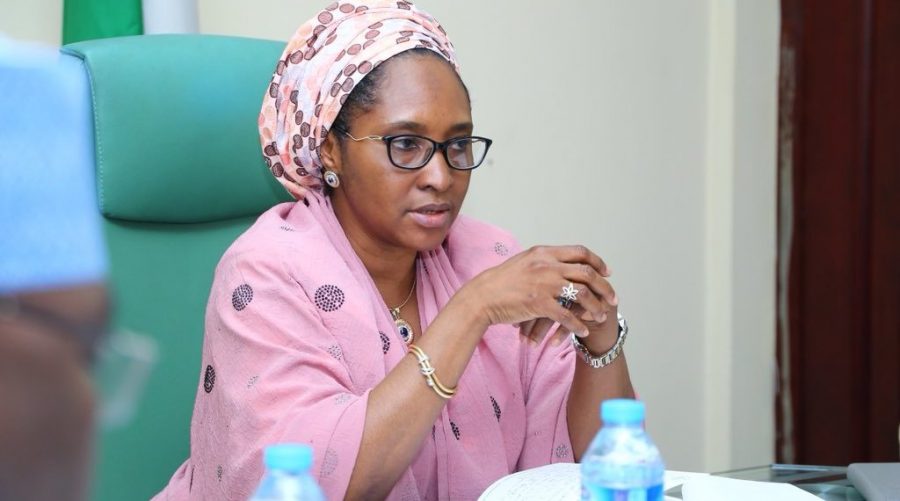The Federal Executive Council (FEC) yesterday approved the payment of 5 per cent of recovered looted fund to the whistle blower behind the recovery.
Minister of Finance, Kemi Adeosun briefed State House correspondents at the end of the FEC meeting chaired by President Muhammadu Buhari.
With her were the Minister of Information Lai Mohammed and Minister of Power, Works and Housing Babatunde Fashola.
According to her, the programme is designed to encourage anyone with information about a violation, misconduct or improper activity that impacts negatively on the Nigerian people and Government to report it.
She said: “If there is a voluntary return of stolen or concealed public funds or assets on the account of the information provided, the whistleblower may be entitled to anywhere between 2.5% (Minimum) and 5.0% (Maximum) of the total amount recovered.
“You must have provided the government with information it does not already have and could not otherwise obtain from any other publicly available source to the Government.” She said
The programme, she said, would increase exposure of financial or financial-related crimes; Support the fight against financial crimes and corruption; Improved level of public confidence in public entities; Enhance transparency and accountability in the management of public funds; Improve Nigeria’s Open Government Ranking and Ease of Doing Business Indicators; and Recovery of public funds to finance Nigeria’s infrastructure deficit.
Stressing that a whistle blower is any person who voluntarily discloses information in good faith about a possible misconduct or violation that has occurred, is on-going, or is about to occur.
She said such information can be submitted on a secure online portal by e-mail or by phone.
The minister listed examples of information that can be submitted on the portal to include Mismanagement or misappropriation of public funds and assets (e.g. properties and vehicles), Financial malpractice or fraud, Collecting / soliciting bribes, Corruption: Diversion of revenues, Fraudulent and unapproved payments, Splitting of contracts, and Procurement fraud (kickbacks and over-invoicing etc).
Stating that not all type of information could be submitted on the portal, she said: “The programme does not apply to personal matters concerning private contracts or agreements.
Noting that all members of the public can submit information to the Whistleblowing Portal, she said that the informant does not have to disclose his or her identity while providing information.
The whistle blower, she said, can additionally submit documentary evidence on the portal.
“You can also provide specific and fact based information such as what occurred, amount involved, who was involved and dates of occurrence on the portal.”
She said the identity of the informant would remain confidential to the fullest extent within the limitations of the law.
She said: “If you choose not to disclose your identity, there will be no record of who you are. If you choose to disclose your identity, it will be fully protected. If you are a whistle blower in public-spirit and in good faith, you will be protected.
“If you feel that you have been treated badly because of your report, you can file a formal complaint. If you have suffered harassment, intimidation or victimisation for sharing your concerns, restitution will be made for any loss suffered.” She added
She said that any information received will be reviewed and analyzed to determine whether or not to open an investigation on the matter.
She said any of the information that is a criminal case will be referred to the relevant agencies; Police, Independent Corrupt Practices Commission (ICPC) or Economic and Financial Crimes Commission(EFCC).
Apart from referral of individuals or corporate bodies involved in diversion of public funds to anti-corruption agencies for possible prosecution, she said that they will be blacklisted from working with or doing business with the Government.
On protection from False or Malicious Claims, she said: “A first level review will always be carried out to determine credibility and sufficiency of information received.
“If you report false or misleading information, it will be referred to the enforcement agents for investigation and possible prosecution.”
She said the informant can receive status updates on the progress with the information that have been provided.

 Entertainment6 days ago
Entertainment6 days ago
 Health5 days ago
Health5 days ago
 Crime5 days ago
Crime5 days ago
 Education7 days ago
Education7 days ago
 Health7 days ago
Health7 days ago
 Comments and Issues6 days ago
Comments and Issues6 days ago
 Football6 days ago
Football6 days ago
 Latest6 days ago
Latest6 days ago










